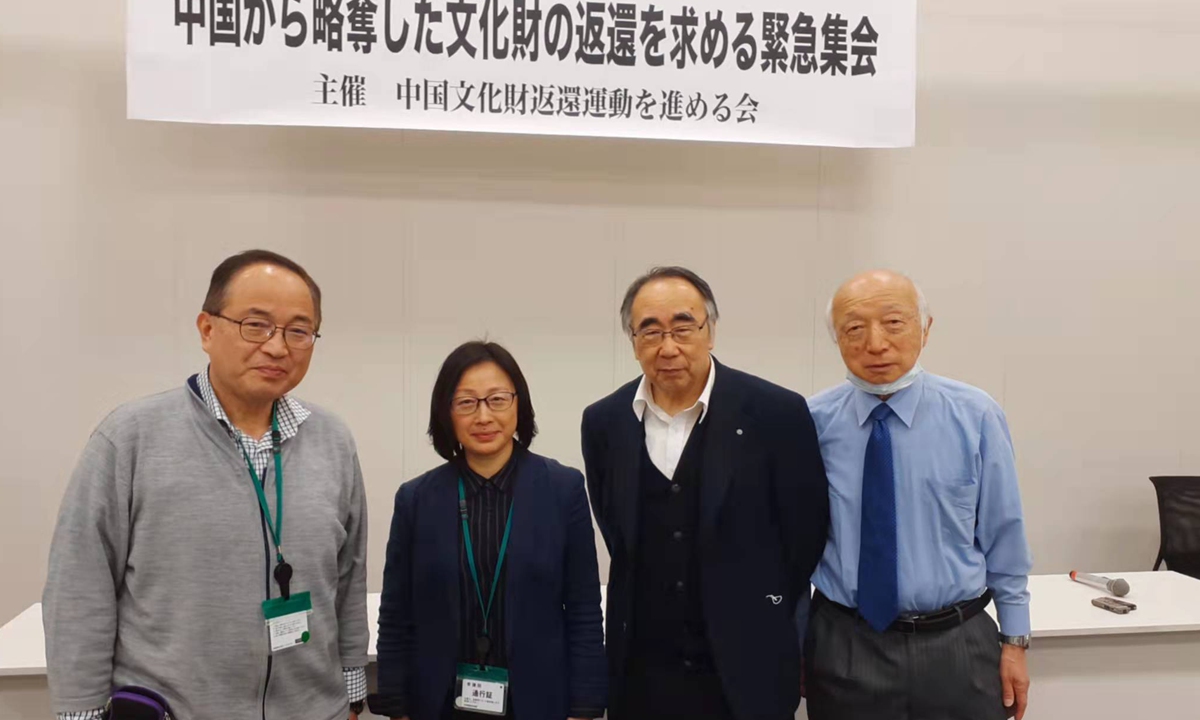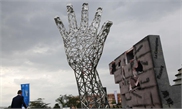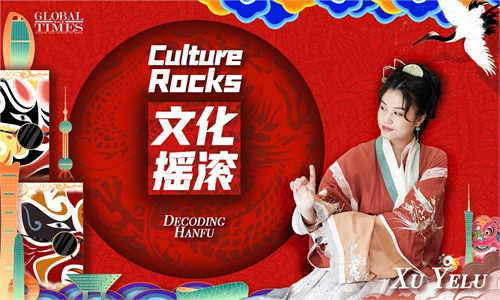ARTS / ART
Japanese lawyer holds rally in Tokyo for return of relics looted from China
Bring them back

People take photos of the Tianlong Mountain Buddha head repatriated from Japan in Taiyuan, Shanxi Province on July 24, 2021. Photo: VCG 
Renowned Japanese lawyer Keiichiro Ichinose (second right) attends a rally in Tokyo on April 20, 2022. Photo: Courtesy of Keiichiro Ichinose
A civil society in Japan held a rally in Japan on Wednesday to call for the government to return Chinese relics stolen by Japanese WWII soldiers. For experts in China, this is a positive signal that reflects "strong public opinion toward government action as soon as possible."A well-know lawyer in Japan, the society's founder Keiichiro Ichinose chose to hold this first rally in Tokyo. According to flyers from the group, the rally is "a grass-roots action" based on solidarity and cooperation between the people of Japan and China.
"This is the first time Japanese have held an emergency rally to 'demand the return of Chinese cultural relics' at a civil level," Ichinose told the Global Times on Wednesday before the rally.
Over 100 people have attended the Wednesday afternoon's rally. "Except for a few scholars, the vast majority of Japanese people know nothing about that history. The Japanese invaders not only set fires in China, but also plundered a large number of precious cultural relics. These are all 'evidence of Japan's aggression in China," Ichinose said.
According to Ichinose, the goal of the movement is to ask the Japanese government to take action concerning these looted relics. "China and Japan will see no real friendship as long as these cultural relics, originally belonging to China, stay in Japan."
For the past 30 years, Ichinose has been helping Chinese victims during the World War II to sue the Japanese government, asking for apology and compensation. He said that "it's very strange" that the cultural relics taken from China that are still displayed in Japan, and the Japanese government chooses to ignore its responsibility.
Tough road ahead
The movement is pushing forward during the 50th anniversary of the normalization of China-Japan diplomatic ties in 2022. The anniversary is seen as an opportunity to advance bilateral relations along the right track toward long-term stability.
The idea to form the movement got its start in 2018, when friends of Ichinose approached him in the hopes that he could help pressure the Japanese government to return the cultural relics. However, due to the COVID-19 pandemic, the first rally was not able to take place until 2022.
"This year is an important year for China and Japan, and this is a good time to draw more attention to this matter in Japan," he said.
For more specific efforts, the movement is focusing on four relics that Chinese scholars have been demanding their return for the past decade.
Among them, the Chinese Tang Honglu Well Stele of the Tang Dynasty (618-907) is the largest and heaviest looted relic and is now in the possession of the Japan Imperial Palace. Though the China Federation of Civil Claims against Japan (CFCC) first made requests to the Japanese government as early as 2014, no substantial results have been seen.
Tong Zeng, president of CFCC told the Global Times on Wednesday that this rally fully reflects the strong public opinion of China and Japan.
Tong admitted, however, that it is "a difficult task" to ask the Japanese government to return the cultural relics.
"It is difficult considering the fact that there is no written convention at an international level that requires Japan to return them in a timely manner," Huo Zhengxin, a law professor at the China University of Political Science and Law, told the Global Times on Wednesday.
But in terms of ethics, after WW II, countries including Germany and France, have publicly formulated special regulations to return plundered relics to other countries. It is expected that the Japanese government will cooperate in this regard to meet the expectations of the people of the two countries, said Huo.
"It is a very significant for a civil society like this to stand out and push the government into the next phase," said Huo.
Yet for Ichinose, the most difficult part is that the Japanese government does not really want to resolve the issues.
"There is an obvious temperature gap between China and Japan in their attitudes toward this historical problem," Huo said.



